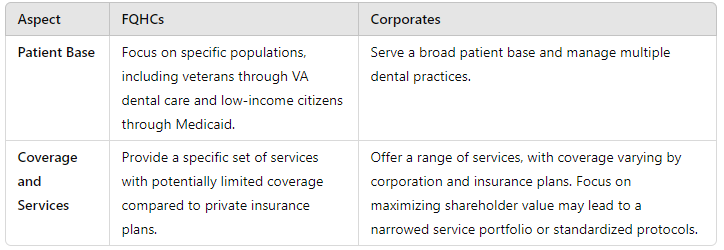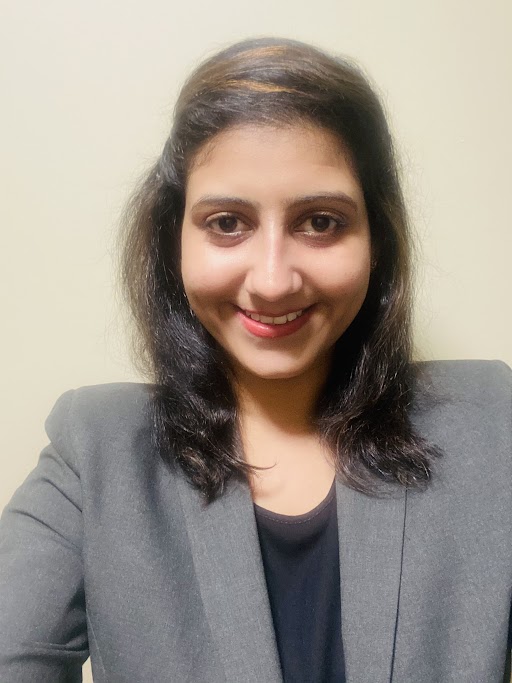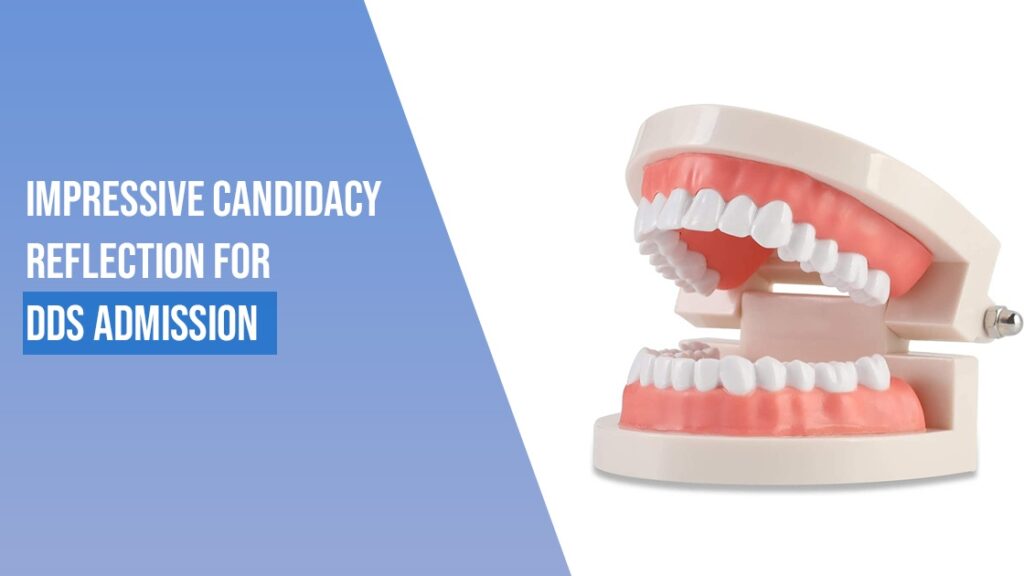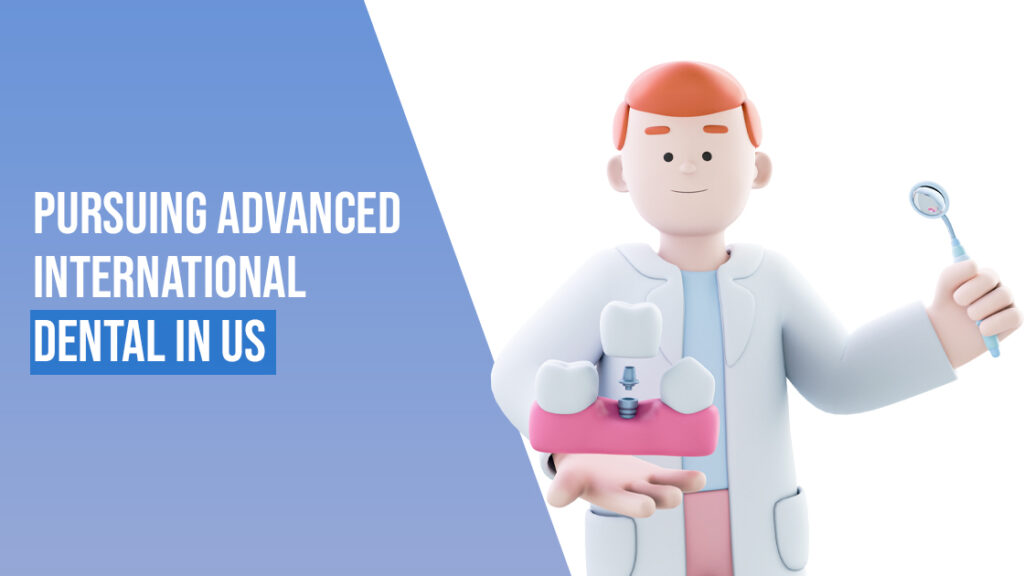Are you an international dentist wondering what steps to take next in your career? If you’re not considering residency and think practice is your goal, this blog is for you.
Whether to work for a DSO, private practice or join an FQHC should be an informed decision that you should personally make for yourself. Let’s unwrap FQHCs as a career choice for you.
A Federally Qualified Health Center (FQHC) is a type of healthcare facility in the United States that comprehensively provides medical and dental services to underserved populations, including low-income individuals, minority communities, and rural residents. FQHCs are critical in delivering affordable and accessible dental care to individuals and communities with limited access to healthcare services.
Benefits
- Comprehensive services: FQHCs offer a wide range of primary care services, including medical, dental, and behavioral health. This comprehensive approach ensures that patients receive holistic care and can address physical and mental health needs in one location.
- Culturally competent care: FQHCs often employ culturally sensitive staff who are responsive to the needs of the diverse populations they serve. This is particularly important in addressing healthcare disparities among minority communities.
- Focus on preventive care: FQHCs prioritize preventive healthcare, which can help identify and address health issues early, reducing the need for expensive and intensive treatments down the line.
- Accessible healthcare: FQHCs are strategically located in underserved areas, often in Medically Underserved Areas (MUAs) or Health Professional Shortage Areas (HPSAs), ensuring that residents in these communities have easy access to healthcare services.
- Affordable care: FQHCs use a sliding fee scale, meaning they charge patients based on their ability to pay. This makes healthcare services more affordable for low-income and uninsured individuals. Health Resources and Services Administration (HRSA) supports its mission of providing care to underserved populations, including those with Medicaid or without insurance.
- Chronic Disease Management: These centers provide ongoing care and support for patients with chronic conditions, helping them manage their conditions and maintain a better quality of life.
- Community Outreach: FQHCs often engage in community outreach and education to promote health and wellness, providing valuable information and resources to improve overall community health.
- Patient-centered Care: FQHCs are critical in reducing health disparities by providing quality healthcare services to those who might otherwise go without care.
- Community and economic development: FQHCs contribute to community and economic development in underserved areas by providing healthcare services and employing local staff.
- Emergency: FQHCs often have the infrastructure and resources to respond effectively to public health emergencies, such as natural disasters or disease outbreaks, providing a critical safety net for communities.
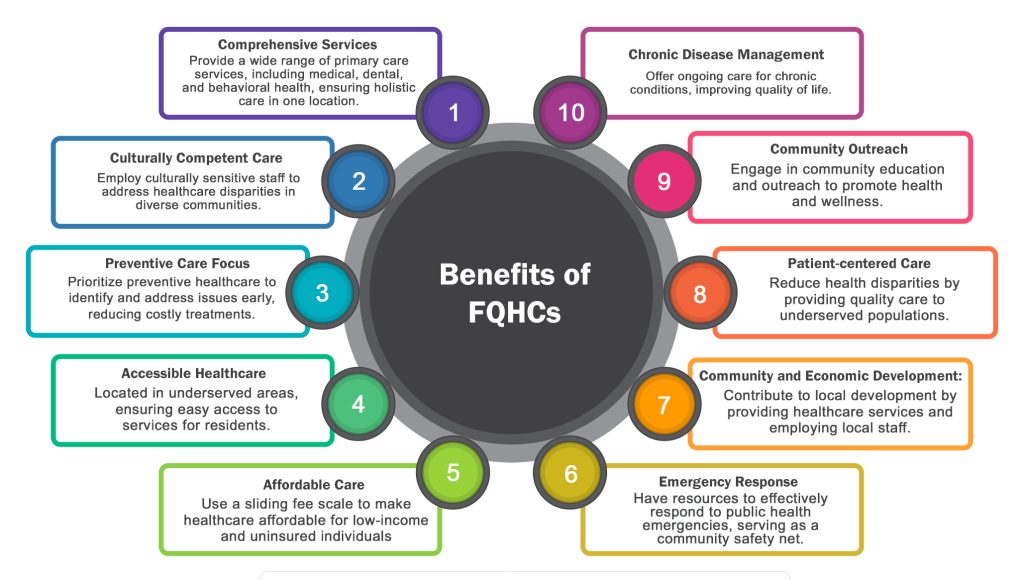
Drawbacks
- Workforce shortages: Recruiting and retaining dental professionals, including dentists, especially specialized dentists (oral surgery/orthodontics), dental hygienists, and dental assistants, can be a challenge for Dental FQHCs, particularly in underserved areas due to restricted lifestyle
- Financial sustainability: Dental FQHCs often face financial challenges due to their patient population, which includes many uninsured or underinsured individuals. Generating revenue to cover operational costs can be difficult.
- Limited resources: Many Dental FQHCs operate with limited resources, which can impact their ability to offer a comprehensive range of dental services and invest in modern dental technology.
- Wait times: High patient demand and limited resources may lead to longer wait times for dental appointments and treatments, potentially affecting patient satisfaction and access to timely care.
- Infrastructure and technology constraints: Some dental FQHCs may lack the infrastructure and technology required to provide advanced and efficient dental care.
- Quality of care variability: While many dental FQHCs provide high-quality dental care, there can be variability due to resource constraints and staffing challenges.
- Complex dental needs: Some patients at dental FQHCs may have complex dental conditions, including those that require specialty care. Obtaining such care may require referrals to other facilities.
- Bureaucratic challenges: Dental FQHCs must navigate complex regulations and reporting requirements associated with their federal funding, which can be time-consuming and resource-intensive.
- Dependency on government funding: Similar to medical FQHCs, dental FQHCs heavily rely on federal and state funding, making them susceptible to budget cuts and policy changes that can impact their financial stability.
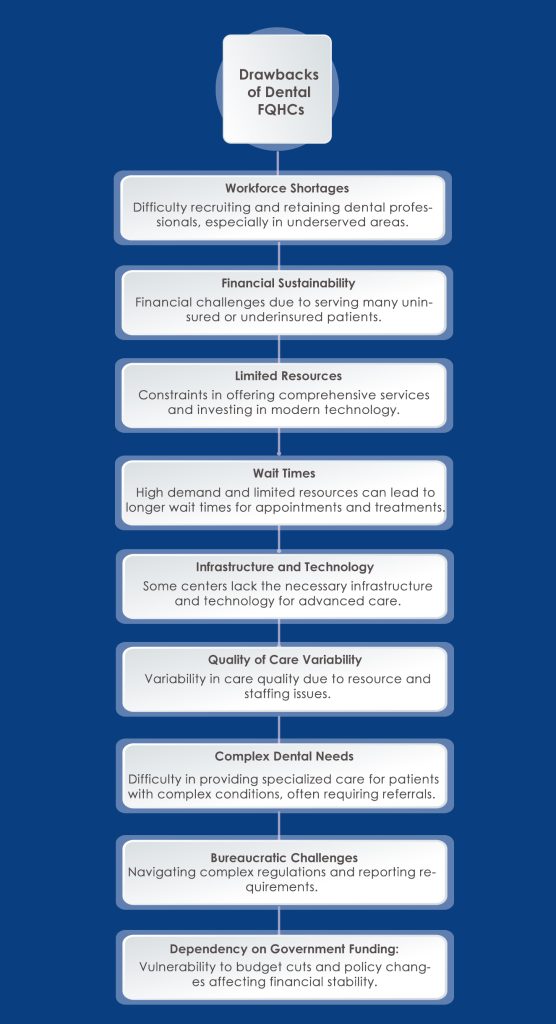
Will you be a good fit?
Joining an FQHC can be a fulfilling career choice for dental professionals who provide comprehensive and accessible oral health care to underserved populations. Here are some characteristics and considerations for individuals who might find working in a Dental FQHC a good fit:
- Commitment to Public Health:
Do you want to impact public health and address healthcare disparities positively? FQHCs often serve populations with limited access to healthcare services. - Flexibility and Adaptability:
FQHCs often serve a broad range of patients with varying oral health needs. You may excel in this environment if you are flexible, adaptable, and capable of providing comprehensive care in different situations. - Interest in Preventive Care:
FQHCs emphasize preventive care and health education. If you value patient education and preventive strategies to improve oral health outcomes, you may find FQHCs appealing. - Passion for Community Dentistry:
Individuals who are passionate about community dentistry and enthusiastic about serving diverse and underserved communities may thrive in an FQHC setting. - Cultural Competency:
FQHCs often serve culturally diverse populations. Dental professionals who are culturally competent, open-minded, and able to communicate effectively with individuals from different backgrounds may excel in these settings. - Team Collaboration:
FQHCs emphasize a team-based approach to healthcare. You may find this model fulfilling if you enjoy collaborating with other healthcare providers, including medical professionals, social workers, and support staff. - Passion for Community Dentistry:
Individuals who are passionate about community dentistry and enthusiastic about serving diverse and underserved communities may thrive in an FQHC setting. - Understanding of Socioeconomic Factors:
FQHCs often serve patients facing socioeconomic challenges. Empathizing with the socioeconomic factors affecting patients’ oral health and overall well-being is a valuable asset to FQHCs. - Interest in Public Policy and Advocacy:
FQHCs are often involved in advocacy efforts to improve access to healthcare. Dental professionals interested in public policy and advocacy may appreciate the opportunity to contribute to broader healthcare initiatives. - Willingness to Provide Comprehensive Care:
FQHCs typically offer comprehensive healthcare services. Dental professionals willing to provide a broad range of dental treatments and procedures to meet the community’s diverse needs may find FQHCs rewarding. - Desire for Long-Term Relationships:
FQHCs often focus on building long-term relationships with patients. Dental professionals who value continuity of care and building rapport with their patient population may find FQHCs a good fit.
Jobs for international dentists in the US. UCLA and CU dentists advise
FQHC’s for international dentists
Working in an FQHC in the United States can provide visa advantages for international healthcare professionals.
- J-1 Visa waiver program: FQHCs often participate in the J-1 Visa Waiver program, allowing foreign dental professionals to obtain a waiver of the two-year home residency requirement typically associated with J-1 exchange visitor visas. This is especially advantageous to keep working after completing their J-1 exchange visitor program.
- H-1B visa sponsorship: Many FQHCs are willing to sponsor international healthcare professionals for H-1B visas. This non-immigrant visa category allows foreign professionals to work in the U.S. in specialty occupations.
- Conrad 30 waiver program: Some FQHCs are located in Health Professional Shortage Areas (HPSAs) or Medically Underserved Areas (MUAs) and may be eligible to participate in the Conrad 30 Waiver Program. This program allows each state to request waivers for up to 30 J-1 visa holders per year, facilitating their ability to remain in the U.S. without the home residency requirement.
- Green Card sponsorship: Some FQHCs may sponsor international healthcare professionals for employment-based immigrant visas (green cards). This can lead to permanent residency in the United States.
- Opportunities for long-term employment: FQHCs often hire healthcare professionals on a long-term basis, which can provide stability and the potential for continued visa sponsorship.
How to apply?
To apply for a position at a Dental Federally Qualified Health Center (FQHC), you can follow these general steps:
- Research dental FQHCs: Start by researching Dental FQHCs in your desired location. You can use online resources like the HRSA Find a Health Center tool to locate FQHCs in your area.
- Check job listings: Many Dental FQHCs post job listings on their websites or job search platforms. Review job listings to identify positions that match your qualifications and interests.
- Prepare your resume and cover Letter: Tailor your resume and cover letter to highlight your qualifications, relevant experience, and commitment to providing dental care to underserved communities.
- Complete the application: Follow the application instructions provided in the job listing. Some FQHCs may require you to submit your application and supporting documents online.
- Prepare for Interviews: If your application is successful, you may be invited for an interview. Be prepared to discuss your clinical skills, experience working with underserved populations, and commitment to public health.
- Licensure and Credentials: Ensure that you have met all the licensure and credentialing requirements to practice dentistry in the state where the FQHC is located. This may include passing equivalency exams if you trained as a dentist outside the U.S.
- Visa and work authorization: If you are an international dentist, ensure you have the necessary visa or work authorization to work in the U.S. or verify if the FQHC is willing to sponsor your visa.
- Interview with FQHC staff: Be prepared for interviews with staff at the FQHC, including dental directors or administrators. These interviews will help the FQHC assess your suitability for their organization.
- Understand the FQHC’s mission: Familiarize yourself with the FQHC’s mission and the populations it serves. Understanding the FQHC’s goals and values can be advantageous during the interview process.
- Provide references: Be prepared to provide professional references who can speak to your skills and qualifications.
- Follow-up: After your interview, consider sending a thank-you note or email to express your continued interest in the position.
- Negotiate terms: If you receive a job offer, carefully review the terms and compensation package. Discuss any necessary details and negotiate as needed.
- Complete required training: Depending on the FQHC, you may need to complete specific training related to the FQHC’s protocols, policies, and procedures.
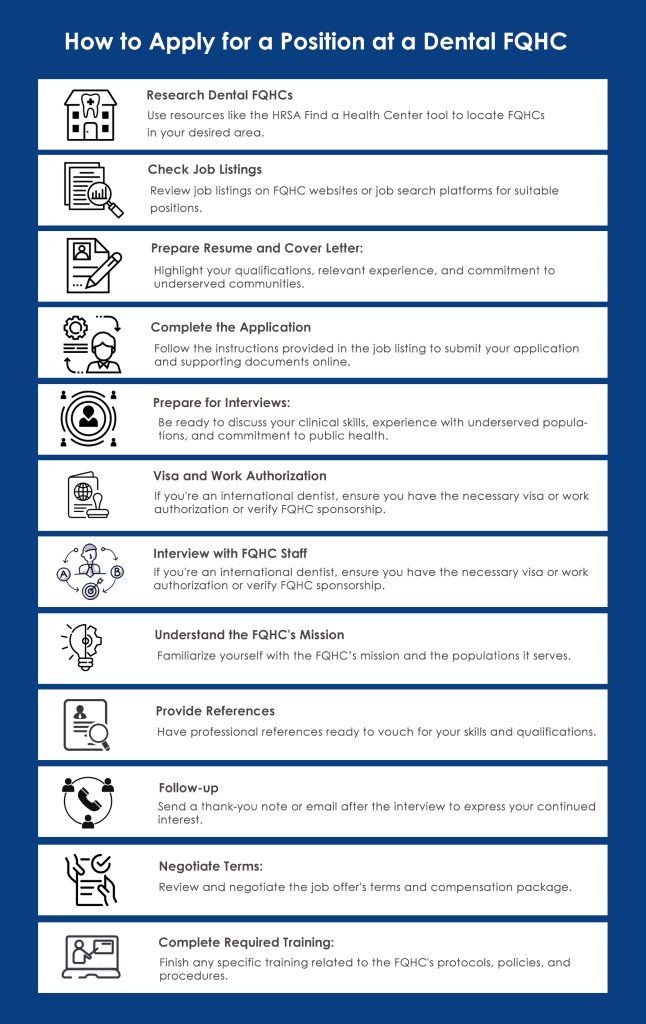
Compensation model of FQHCs
Compensation in FQHCs can vary based on location, experience, the specific FQHC, and the level of education or specialization. However, there are some general considerations regarding compensation in FQHCs:
- Loan Repayment Programs:
Some FQHCs participate in federal or state loan repayment programs, providing dental professionals with financial assistance to repay their student loans in exchange for a commitment to work in underserved areas for a specified period. - Salaries and Benefits:
FQHCs typically offer competitive salaries for dental professionals. The compensation may include base salaries, bonuses, and benefits such as health insurance, retirement plans, and paid time off. - Specialization and Experience:
Dental professionals with specialized skills or extensive experience may negotiate higher salaries. Specializations such as oral surgery, pediatric dentistry, or public health dentistry may be particularly valuable in an FQHC setting. - Federal Funding and Grants:
FQHCs receive federal funding and may also secure grants to support their operations, including salaries for dental professionals. This funding can contribute to competitive compensation packages.Geographic Location:
Compensation can vary based on the cost of living in a particular area. FQHCs in regions with higher living costs may offer higher salaries to attract and retain qualified dental professionals. - Collaborative Care Model:
FQHCs typically operate under a collaborative care model involving multidisciplinary teams. Dental professionals who collaborate with other healthcare providers may receive compensation that reflects the importance of teamwork. - Federal Employee Benefits:
Some FQHCs may offer benefits similar to those provided to federal employees, including health insurance options, retirement plans, and leave policies.
FQHCs vs Corporates
“Federal dental care” describes dental services and programs offered or funded by the US government.
- Patient base:
FQHCs: These programs may be connected to more extensive government healthcare programs and often focus on specific populations. For example, federal dental care programs attract veterans through the VA dental care program or low-income citizens through Medicaid.
Corporates: They typically serve a broad patient base and may manage multiple dental practices.
- Coverage and Services:
FQHCs usually provide a specific set of services, and the coverage may be more limited compared to private dental insurance plans.
Corporates: They may offer a range of services, but the scope of coverage may vary depending on the specific corporation and the types of insurance plans they accept. Since the organization’s primary goal is to maximize shareholder value, they will narrow their service portfolio or standardize protocol across all their dentists to maximize profits.
Your choice of where you wish to work is personal, and if you want to learn more about the alternative, skip over to the previous blog on Careers in DSOs.
